1st BRICS Forum is a flop
How the 1st BRICS Literary Forum was held in Kazan
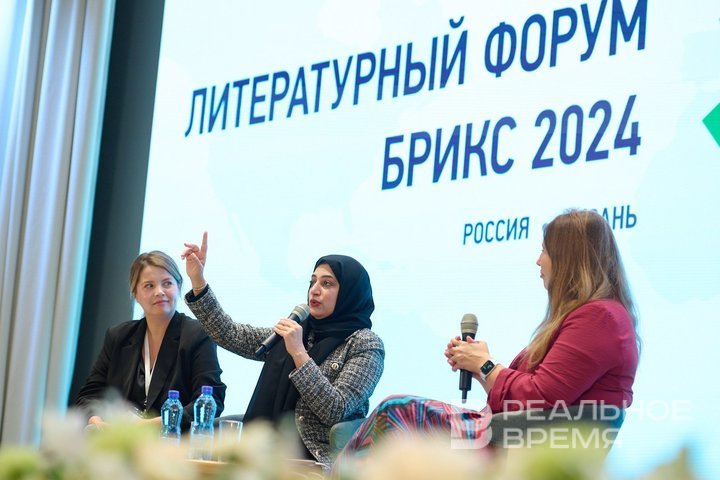
The 1st BRICS Literary Forum was held in Kazan on 11-13 September. World Literature in the New Reality. Dialogue of Traditions, National Values and Cultures was its main theme. There were 27 writers from eight countries among the guests. Realnoe Vremya book reviewer Ekaterina Petrova attended the forum's public events and is somewhat perplexed.
Kind of Aksyonov Fest, but no
The news that the BRICS Literary Forum would be held in Kazan appeared on 26 August. It is quite late for an event of such a scale. One might assume that it was put together in a hurry. Realnoe Vremya did not receive any official responses from the forum organisers and, in particular, from its programme supervisor Irina Barmetova. It is quite possible that the BRICS Literary Forum is a repackaging and expanded version of the Aksyonov Fest, which traditionally takes place in Kazan in late August-early September. Incidentally, Barmetova herself was the supervisor of not only the Literary Forum but is also a member of the Aksyonov Fest Board of Trustees and is responsible for its content.
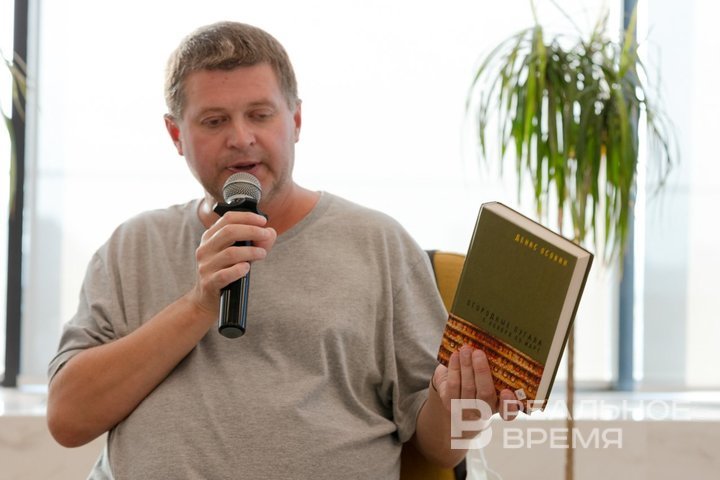
There were practically no hints about the Aksyonov Fest at the forum itself. Only a few events were held in the writer's museum house, Yevgeny Popov (writer and friend of Aksyonov) came to Kazan, and writer Denis Osokin mentioned the festival in his greeting at one of the discussions:
“I want to say something about this year's Aksyonov Fest. In general, this festival is always a celebration and a fairy tale. But this year, when the BRICS Literary Forum is held for the first time, everything is multiplied by the number of countries from which people have come to us,” said writer Denis Osokin.
The rewrapped festival is also indicated by the tender on the state procurement website for holding the Aksyonov Fest. This year, twice as much was spent on the festival as the year before: 15.3 million rubles versus 6.7 million rubles in 2023. The application stated that translators from foreign languages of the BRICS countries would be needed, and the countries from which the guests would come were also listed. All this 100% coincides with the geography of the guests of the BRICS Literary Forum. Journalists found the information on the state procurement website on 21 August. And such events of an international scale, of course, are not done in a month. Even organising a city-level festival takes about three months. Hence such a strange selection of speakers. Apparently, they chose from those who were easier to bring.
And who came?
Anyone could evaluate the speakers at the forum's public speeches. Realnoe Vremya focused on attending events with foreign guests, since all the others were available for comments and communication outside the forum. And in general, it was pretty clear what they would talk about, how and who would come to them. For example, Sergey Shargunov and Igor Volgin gathered a large audience. The forward talked about the literary magazine Youth and how to get there, and the latter did about Dostoyevsky. But everything was much more complicated with foreign guests. The principle by which they were chosen remained a mystery.
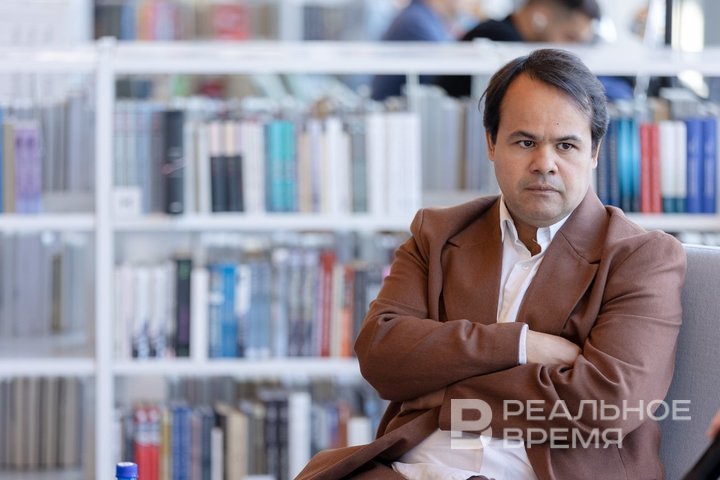
For example, Brazil was represented by Astier Basilio da Silva Lima. He is a very charismatic man who treats Russian literature, especially poetry, with great love and warmth. And here the questions are not for him but for the organisers. For example, a person is interested in the literature of a certain country, learned the language to read books in the original and even translates them into his native language in his free time. This is great, but it does not make him an expert.
Astier Basilio da Silva Lima writes poetry, seven years ago he became interested in the history of his country, which brought him into contact with the USSR. He decided to read historical works of the Soviet Union in the original, and for this, he began to study Russian. But soon he switched from historical and political events to classical Russian literature. Three years ago, Astier Basilio da Silva Lima moved to Moscow to study Russian. He himself said that it took him three years to achieve the current language proficiency. In Russia, the Brazilian received a Master's degree from the Pushkin Institute and is now studying for a postgraduate degree at the Gorky Literary Institute.
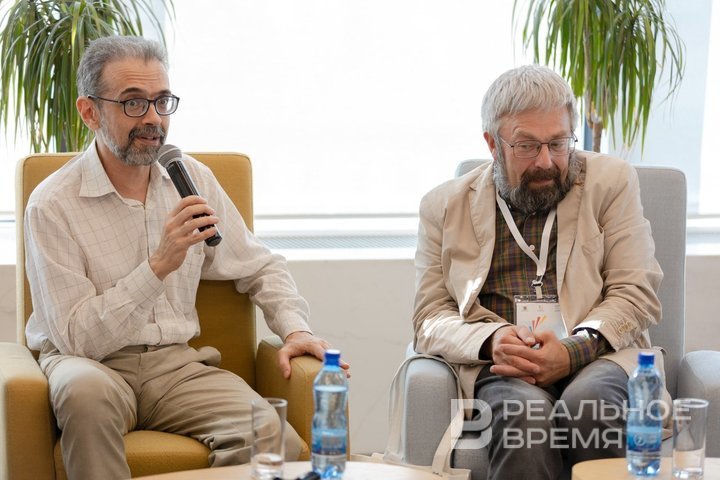
In Brazil, he published a translation of poems by Russian poet Valery Pereleshin who emigrated to Harbin in 1920 and settled in Brazil in 1953. Then Basilio da Silva Lima was requested to translate Alexander Pushkin's novel in verse Eugene Onegin and now he is translating Yevgeny Zamyatin's novel We. All the other countless translations of Silver Age poets, which are listed in the press release, do exist. The Brazilian posts them once a week on his social networks. At a creative meeting in the National Library, he said that nobody knows me, he is a beginner translator.
There were two foreign guests at the Dialogue of Traditions, Languages, Cultures discussion. This was Yevgeny Adbullayev who at this event seemed to represent Uzbekistan, and in the official press release he was listed as a representative of Russia. The fact is that Abdullayev actually does almost all of his professional writing and literary work in the Russian Federation, although he lives in Tashkent. In particular, he is a member of the Expert Council of the Big Book award, and the Editorial Yelena Shubina publishing house recently published his book Katekhonunder the pseudonym Sukhbat Aflatuni.
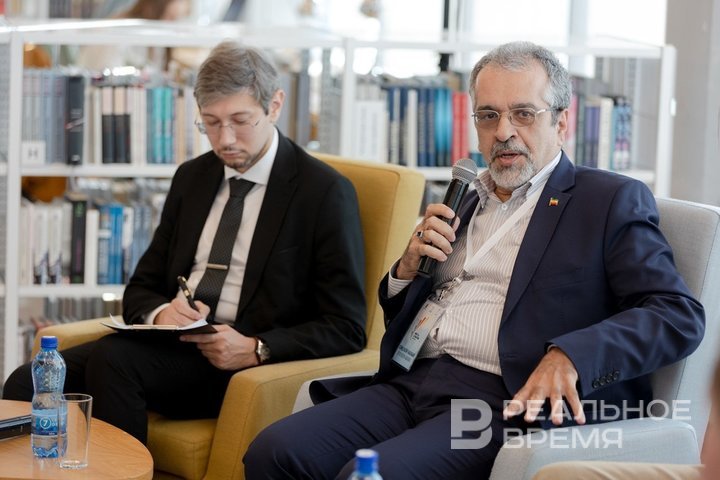
The second foreign guest at the discussion was a representative of Iran Seyid Hossein Tabatabai. He is the editor-in-chief of Caravan online magazine, a member of the scientific councils of IRAS organization and the Institute of Caucasian Studies in Tehran and a translator of Iranian poetry into Russian. A funny situation happened with him at this discussion. He said practically nothing and was present rather for fill the picture: like, here is a representative of Iran participating. In general, the discussion did not go well.
Quoting Wikipedia and an open microphone
Dialogue of Traditions, Languages, Cultures discussion did not go well primarily due to the moderator, Denis Osokin. Either he was not prepared, or he did not quite understand the role of the moderator. Often, it is not given due attention. Although, in theory, the moderator should be well acquainted with the works of the writer if we are talking about a creative meeting or with the literary process if he is moderating the discussion.
“Our topic is Dialogue of Languages and Cultures. This is an absolutely endless topic. Moreover, it is dearly loved by all of us. This is an inexhaustible topic. And our country is multinational, and this is the main thing that characterises it. Therefore, let's try to talk about this. It is very difficult to push off from such a general topic. Therefore, I propose an open microphone,” Denis Osokin began the discussion.
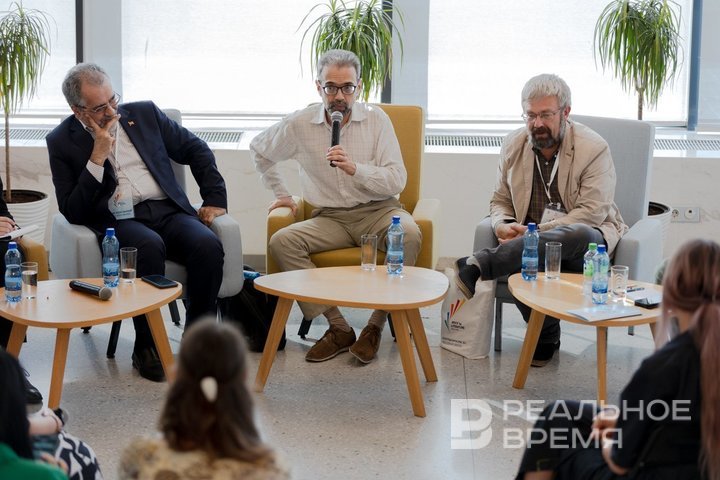
The discussion never returned to the topic. And it was not even an open microphone format. Rather, it was like a get-together where four men talked about what they wanted to talk about. The Iranian was mostly silent and put in a few general words when he was finally noticed. The main speakers were that same Yevgeny Abdullayev and the Editor-In-Chief of the United Humanitarian Publishing House and Modern Literature of the Peoples of Russia publishing project Maxim Amelin. No one supported or moderated the discussion. It is difficult to say that this is only Osokin’s fault because he is generally not very suitable for this role. Rather, this is a question for the organisers who delegated him to lead the discussion.
In general, the problem with moderators at almost all events was felt at the forum. For example, meetings with the same Denis Osokin and poetess Sheikha al-Mutairi were led by poetess and Editor-In-Chief of Kazan magazine Albina Absalyamova. Her moderation of the discussion was better than Osokin's. Here, her journalistic experience was still evident. But there was a sense of isolation from modern literary processes. The questions were more from an amateur than from a representative of the Russian book industry.
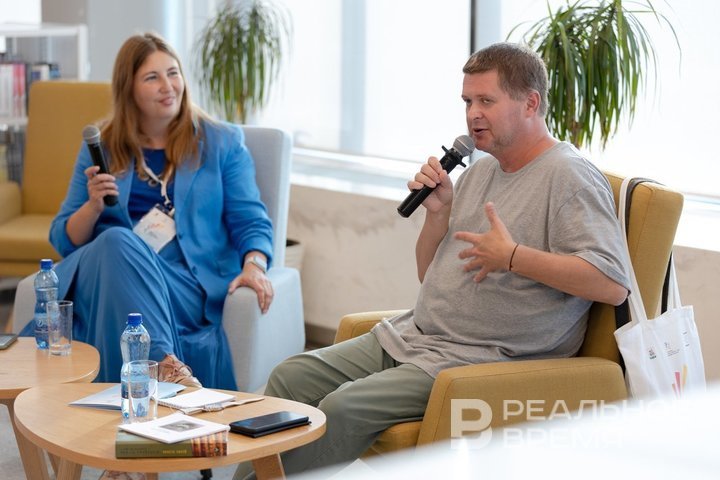
But the one who struck the most was Artyom Skvortsov, a poet, philologist and teacher at Kazan University. He led a creative meeting with the Brazilian Astier Basilio da Silva Lima. The topic was designated as Brazilian Literature after Jorge Amado. And the beginning of this meeting can be called nothing other than an epic fail, that is, a catastrophe. Skvortsov claimed that we (generalising everyone, it is unclear why) know nothing about Brazil, except that it is “a country with lots and lots of wild monkeys.” In fact, this phrase itself sounds wild. Let's leave the ethical issue aside and return to literature. Today, there is quite a lot of translated Brazilian literature, both classical and modern. Therefore, an experienced reader is quite aware of modern Brazilian authors. And if not, then this meeting was supposed to fill in the gaps.
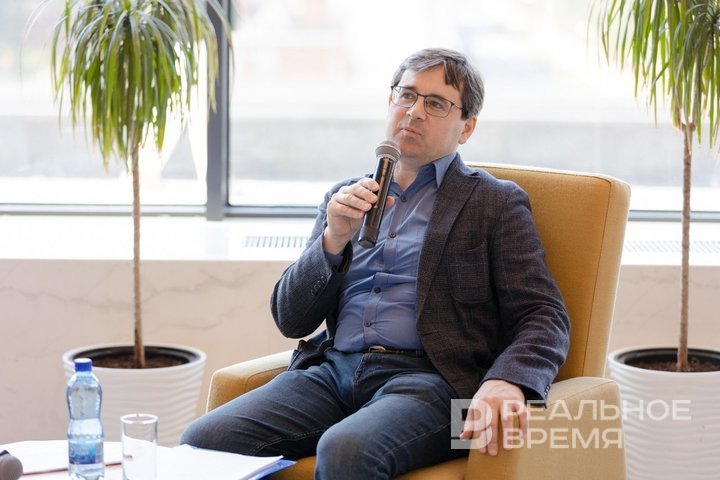
Skvortsov suggested introducing the audience to the context so that the conversation with the Brazilian would be as productive as possible. But no, he did not talk about modern Brazilian authors, literary trends and the Brazilian book market. Skvortsov offered a geography lesson for about fifteen minutes where he quoted Wikipedia. He talked about the territory of Brazil, its capital, population and economy. And Astier Basilio da Silva Lima himself followed the same path, when after an hour of telling about himself, one of those present could not stand it and said: “And when will we talk about Brazilian literature?” The Brazilian also did not bother much and provided an excerpt from the same Wikipedia about the national writers of his country who came after Jorge Amado. This information can be easily found on the Internet in Russian if you google “Brazilian writers of the 20th century”. There was neither unique knowledge at the meeting, nor mentions of young Brazilian writers.
Whereas Indians did a great job
It's not so much the guests from India who are great but as the moderator and children's writer Anastasia Strokina was. She can confidently be given the title of the best moderator of the BRICS Literary Forum. Realnoe Vremya was at two events with her participation. These were a meeting with Indian writer Madhav Kaushik and a meeting with Chinese translator Liu Wenfei and the Ouyang Jianghe. Both were brilliant.
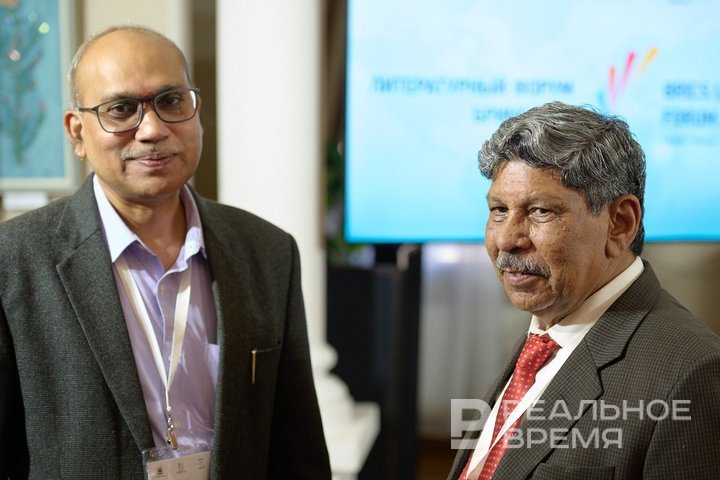
At the meeting with the guests from India, poems were read not only in Indian and Russian, but a translation into Tatar was also prepared especially for this event. At the meeting with Chinese poet Ouyang Jianghe, Strokina personally translated one of his poems into Russian so that the audience could understand the guest's poetry. In addition, she had full knowledge of the literary process in both countries as well as the interaction of these countries with Russia and mutual translations of works of art. Both of these meetings were equally interesting for both readers and industry representatives. Even professional information was presented in an easy and accessible form. In addition, it was felt that there was a structured presentation. Therefore, at the events moderated by Strokina, there was no confusion, deviation from the topic or a sense of hackwork.
“Who did we come to see?”
At the very beginning of this material, we mentioned that the BRICS Literary Forum was made in a very short time. The forum programme was published literally a couple of days before the start. It is unrealistic to gather an audience for all the events in such a short period. Citizens came mainly to see familiar faces — Sergey Shargunov and Igor Volgin. Many people gathered for a meeting with the poetess from the UAE Sheikha al-Mutairi. Students were brought to the other events.
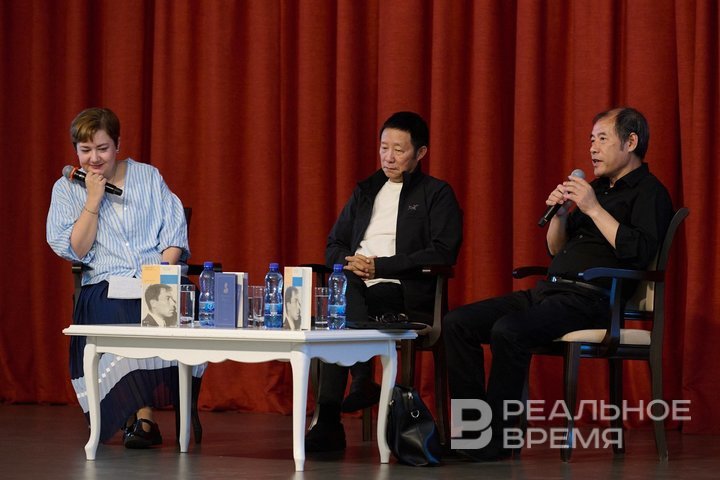
At the meeting with Chinese translator Liu Wenfei and poet Ouyang Jianghe, which was incredibly interesting, almost the entire hall consisted of either high school students or year-one students. Two young people were talking among themselves:
“Who did we come to see? Are they Iranians?”
“I don't think so. I think they are Chinese.”
And there was such a crowd not at one event, but at almost all of them. It's not even that that's sad. It's that there really are a large number of people in the city who would have come to these meetings voluntarily. But they had no opportunity to find out about it.
Despite all the charms of the idea of holding the BRICS Literary Forum, its implementation is seriously lacking. Perhaps, next year the organisers will take into account the mistakes and will be able to prepare well. The BRICS Literary Forum is still very far from the level of the All-Russian Library Congress or the Literary Flagship of Russia, which were held in Kazan this May.
Ekaterina Petrova is a book reviewer of Realnoe Vremya online newspaper, the author of Poppy Seed Muffins Telegram channel and founder of the first online subscription book club Makulatura.